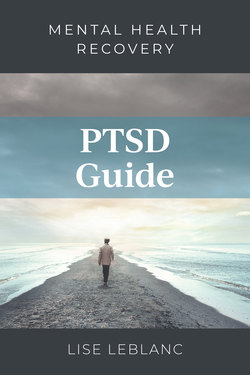Читать книгу PTSD Guide - Lise Leblanc - Страница 8
На сайте Литреса книга снята с продажи.
ОглавлениеFOREWORD
As I read PTSD Guide — Mental Health Series, skilfully crafted by my dear friend and colleague Lise Leblanc, I felt my life being graced by her counsel to be patient, present, gentle, and loving to myself as I pursue my work as a community-based psychiatrist supporting so many individuals who have been exposed to trauma. I was deeply touched by her invitation to instil hope in the hearts and minds of individuals I support. She suggests I invite them to reinvest energies initially invested in attempts to avoid, resist, and hide from dysregulated nervous systems following exposure to single or repeated incidents of trauma.
As I read this guide, I recalled the words of Confucius:
If there is righteousness in the heart
There will be beauty in the character
If there is beauty in the character
There is harmony in the home
If there is harmony in the home
There will be order in the nation
If there is order in the nation
There will be peace in the world
Lise offers comprehensive, practical guidance to “retrain and heal our traumatized nervous systems” on the road to reclaiming our life after trauma. We are advised to take our time to heal. We are offered break points, reflective questions, and practical exercises to optimize our understanding of the wisdom she has accrued over the past twenty years as she listened to her clients and healed from her own trauma. In this book, we are given clear strategies to restore integrity, beauty, harmony and peace within ourselves and within our relationships.
The neurobiological response to trauma makes much sense when she explains it in such a clear and concise manner. She offers a discussion of the importance of relationships, connection, and open communication in this healing journey, with a reminder that “our brains are wired for connection, but trauma rewires them for protection” (Ryan North). Connections between brain changes and symptoms become clear as Lise unites this understanding with recommendations for individualized recovery plans. She paves this road with personal stories and anecdotes. She consolidates our emerging understandings of the neuroscience of trauma with light humour. She advises how to create space for healthy discussion with loved ones, and the development of tools for self-advocacy. She reminds us that “reaching out for help is a sign of strength” in a world besieged by individual and systemic misunderstanding of mental illness. She emphasizes the benefits of self-forgiveness and self-love.
I was once very depressed, after being repeatedly vicariously traumatized. Lise was an angel in my support circle. She recorded my words for me when I was unable to see the light of recovery.
She now again blesses me and offers you the same gift, if you choose to accept it.
She has grown through her commitment to bearing witness to the suffering of others.
She has created safe places for her clients and their families to embrace their vulnerabilities as they retrain their brain and nervous system in the presence of compassionate professional support. Consider accepting this gift of knowledge, wisdom, and hope.
May you be blessed.
May you again be free to love yourself and others.
Dr. Bob King, MD, FRCP
